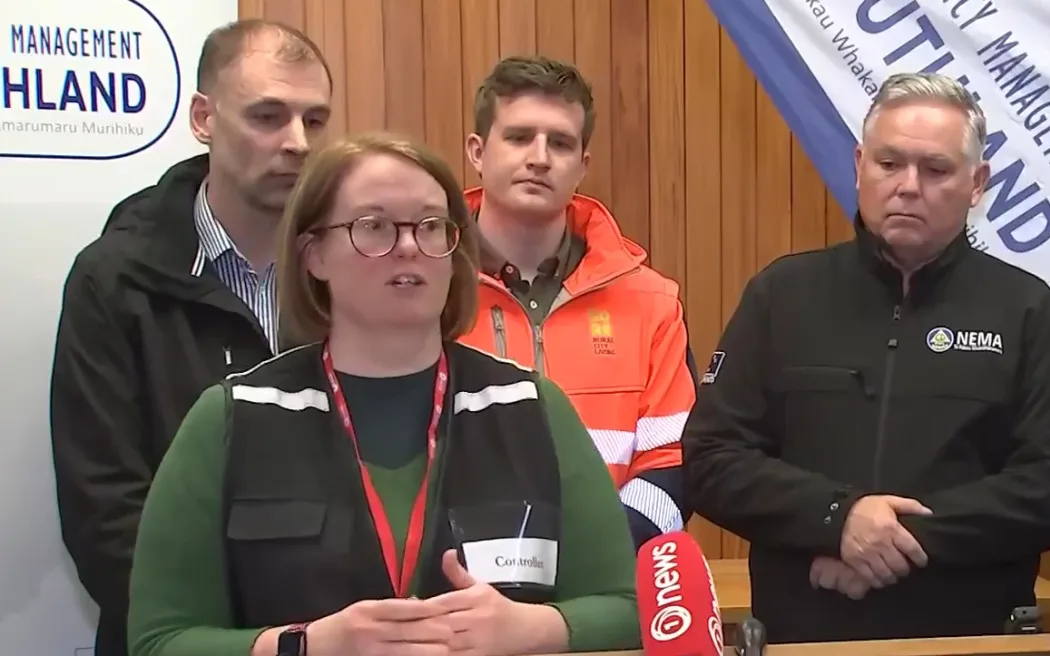"Very, very lucky no deaths from storm" - EMS
Reporting by RNZ
26 October 2025, 6:25 AM
 Emergency Management Southland acting controller Lucy Hicks. Photo: Screenshot / Livestream
Emergency Management Southland acting controller Lucy Hicks. Photo: Screenshot / LivestreamEmergency managers say it is lucky no-one was killed in a fierce storm that lashed Southland and South Otago, knocking out power, water and communications.
PowerNet has restored power to all but 9500 customers, down from 50,000, although the company warned it could take a further five days before electricity was back on in some areas, because of the damage caused by Thursday's wild winds.
Emergency Management Southland controller Lucy Hicks said it was "very, very lucky" that no-one died in the fast-moving storm.
"This one was the speediest that I've ever come across," she said. "We went from an orange warning to a red within about 15 minutes.
"MetService was expecting it to be an orange, within 15 minutes we had 170ks out on the Foveaux [Strait]. That is big and unusual.
"I think we all, collectively, responded really quickly to a really fast-moving situation.
"It's always pedal to the metal, but you are desperate to find situational awareness. That was tricky with limited power and the comms as well."
PowerNet chief executive Paul Blue said hundreds of power poles were down across the region.
"The devastation that happened has snapped many poles, so there are some customers out there that will take quite some significant time to get on," he said. "We are doing everything we can, we will get to you."
About 50 cell towers were off-line as a result of the storm, down from 130, Blue said.
Emergency Management Minister Mark Mitchell said about 20 generators had been flown to Southland to get cellular sites back up and running, while dairy farmers were also being prioritised.
"The big focus, certainly for me, has been to surge generators into the area," he said. "We've got to be realistic that the amount of disruption that has occurred in the network means that it could take up to a week to fully restore [power]."
"We'll keep bringing generators in and people need to look for a commercial option as suppliers bring more generators in as well."
Emergency Management Southland was distributing smaller generators to farms.
A state of local emergency remained in place for the Southland and Clutha districts.
National Emergency Management Agency staff and Defence Force personnel were supporting Southland Civil Defence chiefs.
Published by permission